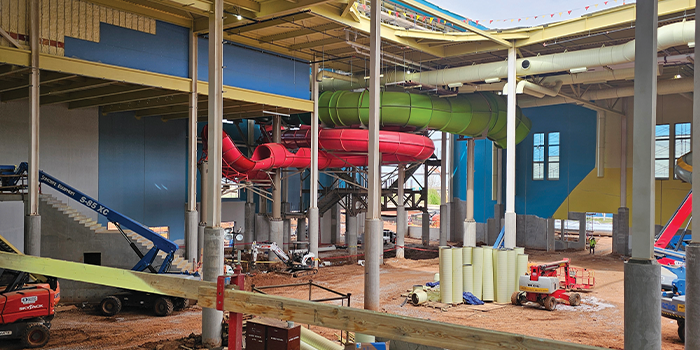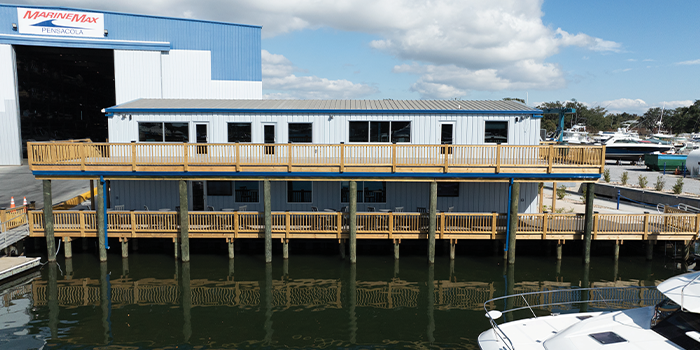A Mash Made in Heaven
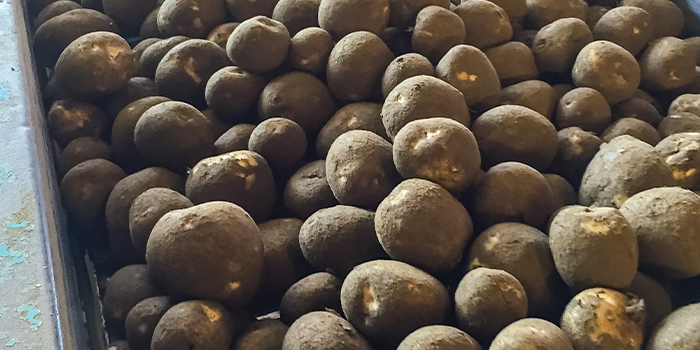

SPRAY FOAM MAGAZINE – Industrial-scale storage solutions are an integral part of the supply chain, especially in food production. The ability to walk into a grocery store at any given time and select fresh, high-quality produce is truly a modern marvel. Take the potato, for instance; it’s one of the most popular vegetables in the entire world. This well-loved tuber’s global popularity means that great care goes into growing, harvesting, transporting, and storing it before it reaches household dinner tables or restaurant kitchens. The temperatures in commercial potato storage facilities must be kept cold and insulated, or else run the risk of spoilage, profit loss, and food shortage.
Who knows insulation better than a spray foam professional with nearly 30 years of experience? Enter Glenn Angus, the owner and operator of SprayIT Solutions based in Carrum Downs, Victoria, Australia. Angus has worked in the spray foam industry since 1995 and got his start on the supply side of foam as a manufacturer and importer. Before founding SprayIT, he specialized in manufacturing refillable froth-packs– portable, self-contained, all-in-one spray foam kits that were perfect for DIYers or construction professionals who needed an on-the-go solution. In 2008, he pivoted to the foam’s service side, installing foam systems for customers on-site. By 2010, he had founded SprayIT, where he now leads a dedicated team of five, and commands a fleet of five spray rigs at residential and commercial sites. No job is too big or too small for SprayIT, and Angus’s extensive knowledge of spray foam insulation products makes him a valuable asset at project sites all over Australia.
In 2023, the SprayIT team traveled to Tasmania, Australia to embark on a massive job for agricultural manufacturer called Simplot Australia, spraying four huge potato shed storage buildings, for a total of 14 cool rooms. Angus’s first introduction to the project was back in 2021, when his company was invited to submit a bid on the project. At the time of initial bidding, the project’s scope was estimated as much smaller – in fact, nearly half the size of the end result, at only two sheds at a single location. But after finding out there was more work to be done, Angus acted quickly to secure the deal. “I chased down the tenderee to submit the prices for the additional sheds, and we won all three.” Angus said.


The project kept them busy for over 27 working weeks, starting in February of 2023 and lasting until December. It required them to travel nearly 500 miles away from their home in Victoria to three separate sites in Tasmania: one in rural Powranna, and another in Cressy, just outside the city of Launceston. The third site was in the coastal town of Wynyard, approximately two hours away from the two Launceston locations. The SprayIT team transported two of their fully self-contained spray rigs to Tasmania using a dedicated truck transport service across the Bass Straight. All the chemicals required for the project were sent directly to the work site via four shipping containers from the supplier, Era Polymers. They rented other equipment locally, like forklifts and scissor lifts.
Because the potato sheds were newly constructed, the SprayIT team had to coordinate with and work around other tradespeople. Vos Construction was the lead contracting company for the two Launceston area sheds, and Mead Con Australia was the lead at the Wynard shed. Both contracting companies were also working on-site to keep the project running smoothly.

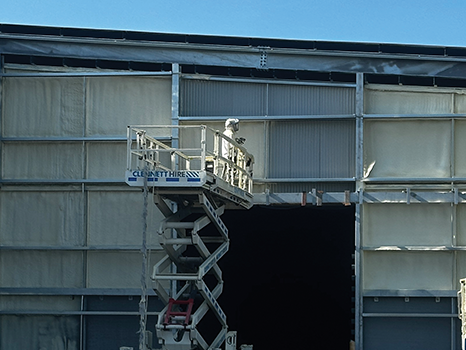
The trade employees that worked on the project referred to the sprawling buildings as “sheds,” a name that almost seems comical given their sheer size. Three of the four sheds were warehouse-sized, clocking over 64,000 square feet (about 5,900 square meters). The fourth shed was about half that size. The full-sized sheds contained four stores, which are 16,000 square-foot (about 1,400 square-meter) cool rooms that allow the facility to store nearly 56,000 tons of potatoes for up to nine months at a time. Each shed had a total spray area of over 94,000 square feet (8,750 square meters).
Spraying both the interior and exteriors of buildings that size took a great deal of time, skill, and back-aching work. Angus and his team of three worked fly-in, fly-out with nine days on, and five days off, going back home to Victoria during their off-days just to head straight back to Tasmania less than a week later.
“We had to keep the reactors running full-time.” Angus explains, illustrating the sheer amount of effort required to not only get the spraying process started, but to keep it going.
Temperatures inside each potato store had to be kept between 39- and 41-degrees Fahrenheit (4 to 5 degrees Celsius). If the store’s internal temperatures rose above 41 degrees, the several thousand tons of potatoes stored inside would sprout, rendering them unfit for sale. To prevent rot and spoilage, the stores also had to be perfectly insulated to protect against moisture caused by Tasmania’s moderately warm, yet high-humidity climate. Each store had air vents built into the floors to keep air circulating and prevent spoiling and sprouting, but without heavy-duty insulation, the potatoes wouldn’t stand much of a chance.
Applying spray foam to the sheds’ exterior and each of the store’s interior ceilings was without a doubt the best way to keep the temperature and humidity levels at a constant low.
Before getting started with the foaming process, the sprayers underwent extensive measures to protect themselves, their equipment, and the building’s floor. First, they dressed in protective coveralls, gloves, and Sundstrom’s model 570 positive air full-face respirator masks. Angus explained that SprayIT chooses to use top-of-the-line respirators for all their jobs, because the full-face model offers eye and respiratory protection all in the same unit, but without the discomfort of having a standard respirator digging into their faces for hours at a time. In addition, air was supplied through air coolers in the masks for maximum comfort.
After protecting themselves, they used a creative method to keep their rented scissor lifts spotless: sprayable canola oil, the kind found in kitchen cabinets everywhere. Given the nature of the job, it was inevitable that the scissor lifts would get absolutely drenched in foam overspray, especially when foaming the inside ceiling at an upside-down angle. To make clean-up easier, the team applied aerosol cans of canola oil to every vertical surface on the lift that wouldn’t be touched or stood upon by the sprayers. The canola oil prevented the foam from drying and adhering to the lifts, allowing the team to scrape the scissor lifts spotlessly clean at the end of the job.
“It took a few hours to spray the lifts, but each application lasted about a month before it needed to be reapplied – and we didn’t have to pay any cleaning charges,” Angus laughs.
Other parts of the scissor lift, like the horizontal deck or the guard rails, got wrapped in layers of masking tape and RamBoard. For the first couple stores, they made track on the floor out of RamBoard for the scissor lift to roll over, and used a small, sharpened bulldozer blade attached to a forklift to easily scrape up any leftover foam that ended up on the ground. By the last few stores, they opted to cover the entire floor in the rest of the RamBoard for quick clean-up.
After performing the necessary prep work, the SprayIT team got started by applying closed-cell spray foam to each of the stores in sections while other parts of the massive buildings were being built, moving from one section of the facility to the next as soon as the other contractors gave the go-ahead. The sheds themselves were framed with steel I-beams, with walls made of precast concrete panels and corrugated iron, and a double-skinned roof made of corrugated iron.
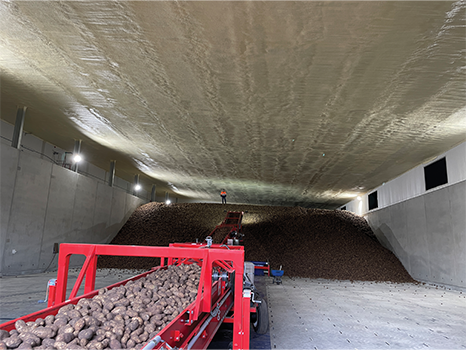
On the exterior of each building, the sprayers applied a four-inch layer (100 millimeter) of RS241 closed-cell polyurethane foam by Era Polymers. They used Fusion Clear Shot spray guns affixed with a 02 tip. The foam layer was sprayed on top of the building’s steel frame, and once dried was then covered with metal cladding to completely seal the building and prevent UV light from degrading the foam.
On the inside of each store, the team sprayed the interior ceiling once more with PIR RS241, this time using a 01 tip.
“We could have saved time by using a bigger tip, but I think it would have created more problems in the end.” Angus explains. “We were basically spraying upside-down onto a non-flat, corrugated iron ceiling, so we went with the smaller tips to prioritize precision and neatness, and ensure we met our KPI for the finish.”
Additionally, they used another type of closed-cell foam called Ecofoam PIR RSP400, also by Era Polymers. They applied this foam to the in between the shed’s internal walls that separated each of the individual stores, and selected this foam for its fire-barrier qualities.
Overall, the entire project required a staggering 251 sets of material. Angus and the SprayIT team toiled tirelessly over the course of working weeks 27 to cover a colossal amount of surface area in spray foam. Angus had estimated each of the sheds to take about six weeks to complete, but he and his team got the job done with time to spare and within budget. Thanks to Angus, the SprayIT crew, and the insulating powers of spray foam, Simplot’s new storage sheds were ready to be filled to the brim with bountiful harvests – and to ward off any possibility of hot potatoes.
For use by SprayFoamMagazine.com & Spray Foam Magazine
Disqus website name not provided.





